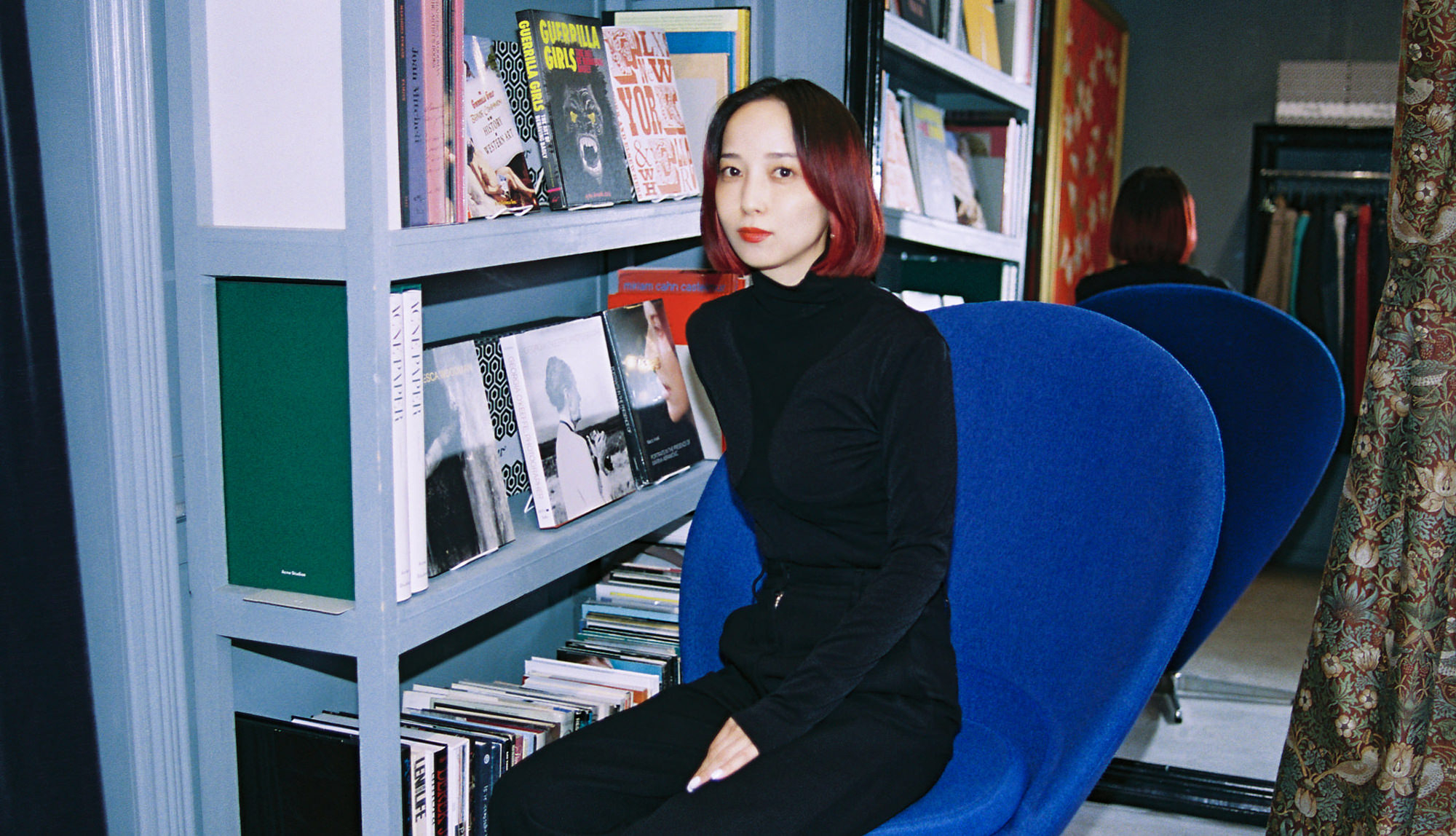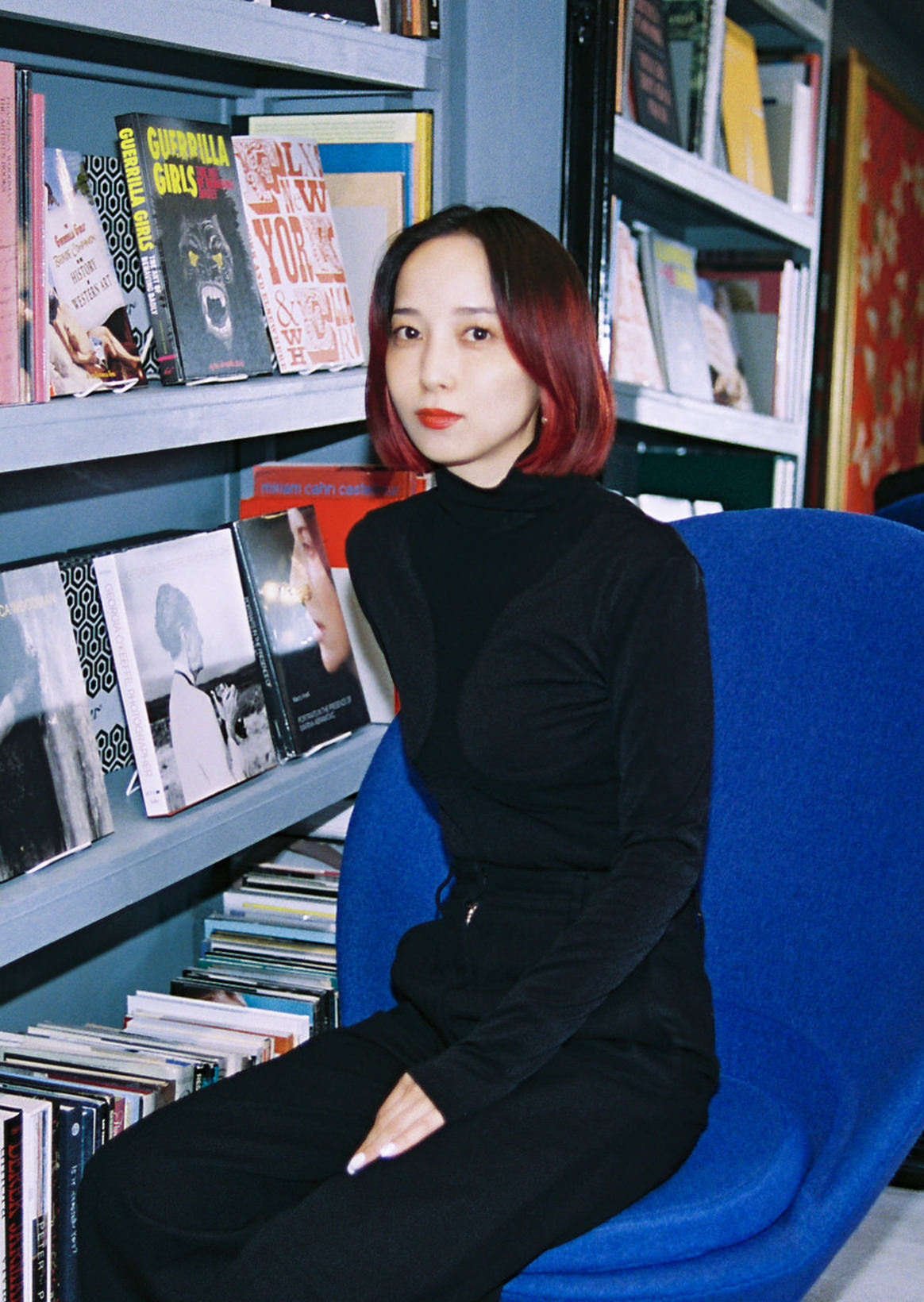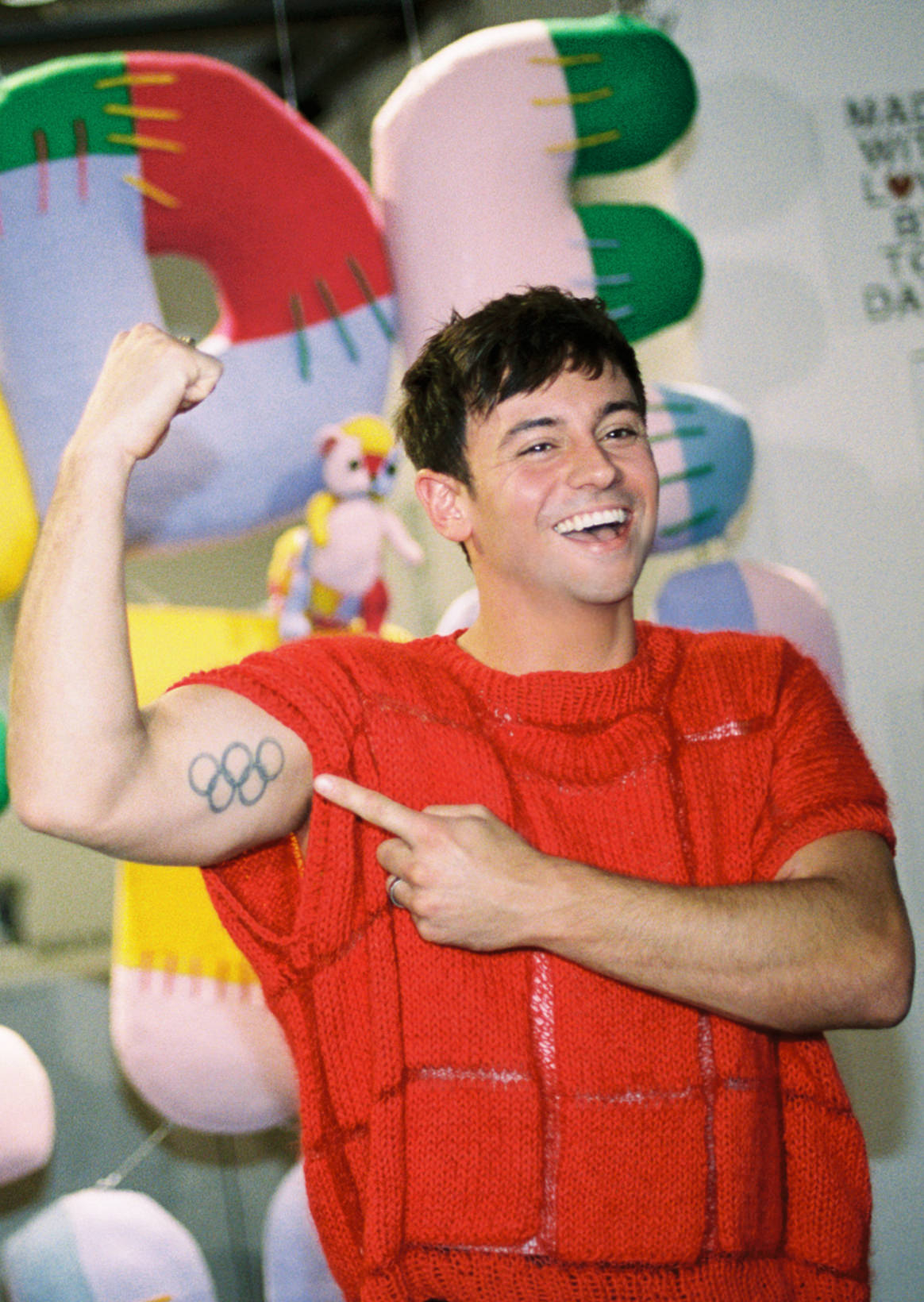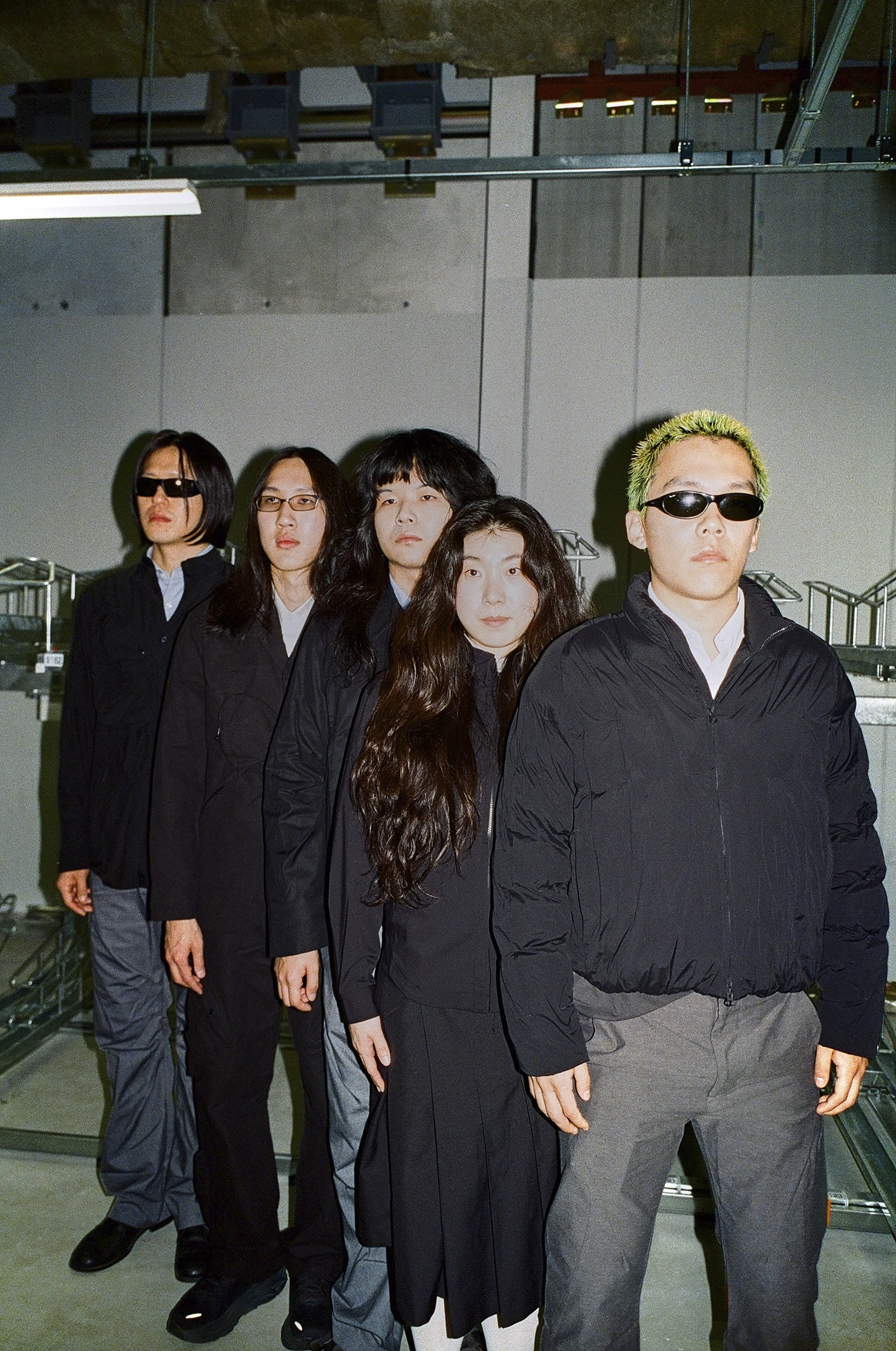The select boutique "Sister" started in Shibuya in 2008. The "store for women" is set up, and the culture and the clothes that the director/buyer Yumi Nagao are lined up. It is a book related to feminism that leaves a strong impression along with art books in the store. We spoke with Yumi Nagao about the dialogue created by learning feminism about the International Women's Day event held at Shibuya PARCO, in collaboration with world-famous feminist artists such as Monica Meyer and Guerrilla Girls. As Yumi Nagao, his history as Sister is a power for someone, and someone encourages someone's heart again—the cycle is strong and beautiful.
- Photo
- Sachiko Saito
- Text
- Ryoko Kuwahara
- Edit
- RIDE Inc.

――Could you tell us about the relationship between "Sister" and feminism from the beginning?
Since its opening, Sister had the concept of a shop for women. The name of the store was taken from Yoko Ono's song "Sisters, O Sisters" in ALBUM Some Time in New York City, which I often listened to at the time. From there, I came to think more deeply about feminism when I became independent of the previous company in 2018. When I came to interact directly with outsiders as a representative, I sometimes responded negatively because I was a woman. When I talked to my friend about it, my friends from Japan and overseas had a completely different way of receiving it. Foreign friends, as a matter of course, have the sense and knowledge that gender-based discomfort can be voiced, while Japanese women often receive it and end it. When I realized that, I had been working as a "store for women" for 10 years, but I decided to face such thoughts as what I really wanted to convey to women. Therefore, once again, we started an event in conjunction with International Women's Day in 2019 to learn about what "for women" means from feminism and think together with our customers. (First time, collaboration with TISSUE Magazine)
――That's because I wanted to learn together.
That's right. The issue of gender differences has been discussed all the time, and there are various people's ideas, and I think that it is still the process of maturing as ideas, but by learning, I am in such a situation and stage I can know that there is. Furthermore, by holding an event, you can have a variety of dialogues with customers whose harassment and situations will be completely different. I would like to think together in this way, so Sister's event is a form of dialogue and learning about one topic rather than a proposal.
Originally, Sister cherished the context and wanted to convey it to customers, including the background of music and art associated with a single piece of clothing. That's why I put an art book in the shop and played music. With regard to feminism, the history and ideas of women's clothing cannot be spoken without the need for them. So, when I threw it in the same way as before, "I'm very interested in this matter, what do you think?" There were many voices that wanted to like it because it was a shop.


――If you have something that Nagao gained while learning, can you share it?
I grew up in an environment where men and women are relatively persistent. I think I originally had a high interest in trying to do anything, but every time I was thrown the word "I can't do it because I'm a woman." However, considering the days and communities of my father and grandfather, I think it was inevitable. I would like to learn with interest in the sense of accepting and convincing the environment where I grew up, and I think that even if my opinions are different, I can interact with other people with imagination.
In particular, by knowing the history deeply, women are "second sex" in various things including education, etc., that is, society so far has been made mainly by men, and in a sense women are inferior to men I knew that I was biased, and from that imprinted, I gave up and giving up opportunities and benefits. I think I'm still free to do it, but there are moments when I think there might have been a different step if I have a stronger ability to jump out against the words to deter. That's why I think it's very important to know from childhood that everyone has the potential and you have the right to make decisions in life.
――Don't create unconscious prejudice and Ann contemption bias.
That kind of bias affects many parts of life. For example, I'm doing this shop as a single mother, but even if I decide to divorce or when I actually get divorced, somewhere potentially "I can't do anything for myself" or "I can't become independent" may work and hinder it. In my case, to many feminist friends around me, "You are fine!" I was able to do my best even if I was a little anxious, but depending on the environment, the person who consulted should deny the possibility. That's why I would like to tell those who are connected through Sister that we originally have many options, and I would like to work to remove the footprints imprinted by my gender and environment.

――This is an event for International Women's Day, which has come to fruition, but it is attractive that the collaboration that has been held so far has a pop that is easy to step into while working with people who are seriously facing the problem. Please let me know if there are any backgrounds of the collaboration and what you see through them.
Regarding gender gaps and social issues, some people may be drawn if they have nothing to do with them, but by asking casually through clothes, they tell me that they have such an experience or want to participate, so the purpose is to communicate with many people flatly.
For the past two years, I have been collaborating in the context of feminist artists, but I was shocked by my work at the Aichi Triennale regarding my work with Monica Meyer at Shibuya PARCO in 2022, so I told you that I would like to do something together. She changed "The Clothline" to "Silence Clothline," a work that overhangs the voices of various people who had sexual harassment and sexual violence, to "Silence Clothline," and showed rebellion with the opposite performance of removing voices only leaving questions. Monica is a legend that has been working on feminism art for 40 years, but as soon as you speak out, please accept it. Monica said that Mexico also has a strong patriarchal system and similar nationality to Japan, so I was able to talk variously, including the request to establish a unique question, and I was able to join us. It was a really big event. It is also an event that learns about the strength of the participatory type. Visitors wrote a lot of experiences related to gender gaps, and I realized that there are things that I feel every day that comes out immediately like that, and I decided to continue participating events from now on.

――How was Guerrilla Girls (Gerilla Girls) in 2023?
I planned with the desire to see their works that could only be seen overseas in Japan, but thanks to the precedent with Monica, the rental of works favorably progressed. I was glad that many curators and curators came with the cooperation of various people, including Professor Konosuke Kawakami of Kurashiki University of Science and the Arts, but it was also an opportunity to think about the gender gap in the art world and the future.
In recent years, I feel that the number of projects that take into account gender imbalances has increased in various places, but I think there are still many issues when I hear the voices of the people in the field. There are a lot of things we could do because we are independent, but feminist artists often accept two answers if they understand that this is serious because they want to share their manifests widely. Looking at the gender ratio in various fields of the field survey team of expressions that cooperated with the exhibition (which is first surveyed as gender ratio here), there are many women in the industry, and when authority is higher, men are overwhelmingly large. It's easy to imagine yourself by visualizing it.

――Although it is not an art museum, Sister's International Women's Day event has been held in commercial facilities during this time. What does it mean to express in Shibuya PARCO?
There was a pop-up story from Shibuya PARCO who had been concerned about Sister for a long time, and I bumped into a project for International Women's Day, but I think it is necessary to update our consciousness to see what we are doing at commercial facilities where various people come and go and listen to opinions that are different from usual. When I'm doing an event, there are many moments when I think my thoughts aren't 100% correct. Men in their 50s said, "I'm studying unconsciously without hurting people by watching these exhibitions," and I feel that the interest of young people, not only gender, is increasing year by year. There is also a part that hopes to expand the possibility that doing this in such a place may be an opportunity to get into your eyes and think a little in someone's life.


――From March 4th to 10th, 2024, you are planning an exhibition on the history of sanitary products at Shibuya PARCO in collaboration with the organic sanitary products brand "limerime".
One of the real pleasures of this event is that it is possible to connect with various people who have a close sense, but limerime also got acquainted with the introduction of the editors who came to Monica's event. There are many things in common with the founder, Shion Sudo, so we met with each other immediately. limerime is a wonderful initiative in terms of environmental considerations, because it uses plastic-free and biodegradable materials that return to soil, but I was also impressed by the background of creating products that can only be selected from sanitary products made by large companies, and also by creating products that have a good benefit to women's health and body and expanding their activities.


Of course, the price of limerime is higher than those that are generally distributed, but I would like to disclose and link the history of sanitary products in order to convey the meaning and value of the products. In the first place, women's advancement in society and menstruation are inseparable, so there are some difficulties in working in society unless the body becomes easier. Japanese sanitary products started 40 years later than in the United States, and in the policy of wealthy soldiers, the menstruation has been suddenly curved because many children cannot be born unless the menstruation is normal, and the social trend has controlled the sex of women. Even now, Japan has a much slower decision on women's bodies, such as the after-pill problem, but it would be nice if we could tell our customers the social structure that is hidden about such bodies and the reasons, etc. I am preparing for it with the supervision of Dr. Hikaru Tanaka, who is studying the history of Japanese physiology. I also think that if this can be completed as an exhibition, it may be diverted as part of education.
――Knowing will change your purchasing behavior and change the structure of society.
Yes. As is often said, I think shopping is the same as the election. It is becoming a standard to invest money where you want to recommend, and then use it as a fund to make the company healthy. I think Sister continues to be supported by such support, and even when viewed as a buyer, I feel that there is growing support for brands that women can enjoy independently.



――Sister is a shop that has been running in Shibuya for more than 15 years, and I have a strong impression that the horizontal connections such as collaboration with Shibuya PARCO and the Shoto Museum are also strong. What do you think about the city of Shibuya?
I've been growing up in Shibuya since I first part-time, and I feel like this is my field. It's a place I really want to take care of, but because I like it, I have a complicated feeling. For example, Shibuya has a partnership system and ordinances that promote a society that respects gender equality and diversity in Shibuya-ku, so it has a tolerant image of gender, but I think there are more activities that can be done. It is also lonely that small movie theaters and bookstores have disappeared as development progresses. In the past, in Shibuya, where small cultures gathered, many people found communities and they were coming and going, but now it's hard to see small cultures, so I want them to be a little more energetic. In such a situation, I think Shibuya PARCO is a place where people can communicate culture and want to go all the way.
――Sister is also such a place of origin. Mr. Nagao Do you have any works that you think have raised or influenced you?
After all, the influence from Yoko Ono is great. "Sisters of Japan firmly!" in a book called "just me" "I always get energy in the passage," When I went to the autograph session, I wrote a letter saying, "Sister's name was from Yoko's song." I also learned the importance of living with independence from Yoko Tajima's idea of "It's not a feminism for someone, but a feminism for yourself." And above all, my friend living abroad said, "I've been doing a shop for girls for many years, so I need to know more about women's rights."
――Today is often referred to as the "era of disconnection." What do you think is how to establish a dialogue there?
In SNS, I feel that there are moments when it is easy to divide according to thought, or when both poles stand out, but the original purpose is not to fight, but how to coexist. Right now, wars and genocides are taking place in the world, and it is being overwhelmingly imposed and imposed on one's opinion, but I think this is also due to the lack of understanding and respect for others in exercising such force.
In fact, over a long period of time, various things such as ethnicity, religion, and many historical events have started, and distortion has occurred worldwide. I don't think this mistake will end unless you know the history, understand the other person's culture, and exclude politics that prioritizes their interests and appearance. We have to think about coexistence in the true sense.
――Do you have anything you want to pass on to the next generation for a recycling-oriented society where diverse values come and go?
Rather than inheriting it, I don't want the younger generation to think like myself. In order to convey the way that I would be happy if it was a little like this, I used to donate the sales of the event before, but sometimes I could not choose how it was used with money, so I purchased a children's book and donated it I made it. Last time, I donated it to about 30 children's centers in Suginami-ku, but I think it is an important activity to inform them that there are various ways of thinking and the potential of women from an early age. You.
The circle of feminism spun by Sister. I hope that the circulation will continue and spread.

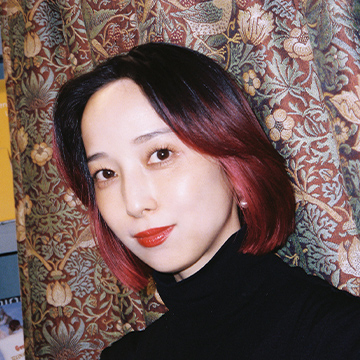
Yumi Nagao, Representative of Sister―
Director and buyer of select shop "Sister". Select designer brands and vintage items from Japan and overseas, mainly women's. He has a deep knowledge of not only fashion but also movies and art, and uses his wide knowledge and aesthetic eyes to develop collaborations in various fields. In recent years, he has been actively involved in supporting women. Independence in 2018. In July of the same year, "Sister" was reopened in Shoto, Shibuya-ku.
Instagram(@yuminagao_)(@sister_tokyo)
